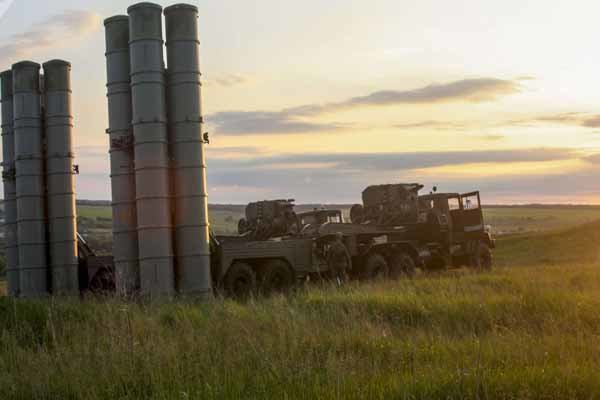Putin’s S-300 winging to Syria: Tel Aviv’s nightmare

TEHRAN - A Russian Ilyushin-20 military aircraft with 15 servicemen on board was brought down on September 17 by Syrian anti-aircraft S-200 air defense system in northwestern Syria. Moscow blamed Tel Aviv for the incident, and the Zionist authorities fought to cast blame elsewhere.
Prime Minister Benjamin Netanyahu last week sent a delegation, led by Air Force commander Maj. Gen. Amikam Norkin, to Moscow to present its findings about the incident, but the meeting was brief and the delegation was fast sent back to Tel Aviv after the Russians rejected the Israeli explanations.
According to information leaked to media outlets, the meeting of the Russian Air Force commander with his Israeli counterpart, who had presented details about the incident and claimed innocence, was a complete failure. The Russian general left the meeting and threatened to drop any Israeli fighter close to the Syrian coast and the official spokesman for the ministry, Gen Igor Konashenkov, said that Israel is “fully to blame”.
“After the first attack, the Israeli jets pulled back, moving to an area 70 kilometers west of the Syrian coast, turning their radar jamming devices on and apparently making preparations for another attack. The Israeli fighter jets used the Russian Il-20 aircraft as cover against missiles. The Israeli F-16 fighter jets’ pilot knew that Russia’s aircraft would be the unidentified preferred target for Syrian air defenses,” he added.
After the incident, the Zionist authorities, including the Israel’s Avigdor Lieberman, did not give up and talked about continuing attacks on Syria. The Russians were also reluctant to announce it will supply Syria's government with sophisticated S-300 air defense systems because they knew it would create controversy. Both the U.S. and Israelis objected. Netanyahu’s office in a statement called the transfer of advanced weapons to the Syrian government “major mistake” that will increase the dangers in the region, adding that Israel will continue to defend its security and interests.
However, the Russian Foreign Minister said the delivery of the S-300 system to Syria will created more stability and not lead to added tensions. According to the Russian Foreign Ministry, the S-300 system is a defensive system, contrary to what the United States claims. Russian officials also said it is an inalienable right of any state to provide defense industry assistance to its allies.
Russian President Vladimir Putin said in a telephone call with his Syrian counterpart Bashar al-Assad a few days ago that the S-300 systems will be deployed to Syria by early October. The system is capable of intercepting incoming missiles at a distance of more than 250 kilometers, which covers most of the airspace including Lebanese airspace along the coast of the Levant.
Command posts of the Syrian air defense will also be equipped with Russian automated systems, which guarantee the identification of Russian aircraft. According to the Russians, this will facilitate centralized control over all forces and resources of the Syrian air defense, help monitor the situation in the air and ensure operative issuance of orders. Most importantly, it will guarantee the identification of all Russian aircraft by the Syrian air defense systems.
Russian President Vladimir Putin apparently did not accept Israeli Prime Minister Benjamin Netanyahu’s displays of sorrow over the death of the plane’s crew and took a cautious stance on the incident. He warned that Russia will respond by “taking additional steps to protect our servicemen and assets in Syria.”
Putin had for a long time delayed supplying the S-300 system to Syria, even after the deal had been signed. But the shoot down of the unarmed Russian plane was too much to tolerate. Even so, the Israelis are claiming they will destroy S-300 sites in Syria once they are established on the ground. This is likely to be a hollow threat since the Russians are not playing games this time and will target Zionist aggression against Syria.
Russian Academy of Sciences Sergey Sedov told Sputnik that seven S-300 systems will completely cover Syria's airspace, but three to four systems will cover vast areas of Syria. Anyway, it is clear that the fall of the Russian plane, followed by the crisis between Tel Aviv and Moscow, was a golden gift for Damascus that may end Israeli attacks on Syria. The Israelis no longer dare enter Syrian airspace, and have often attacked from Lebanese airspace. Given the change in the conflict rules, the possible delivery of the S-300 to Damascus, as well as the sending of military equipment and other reinforcements, the use of Lebanese airspace may no longer be possible. It may all prove to be a nightmare for the Israelis.
Leave a Comment